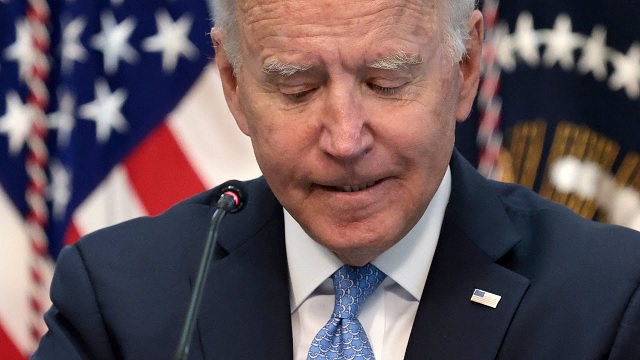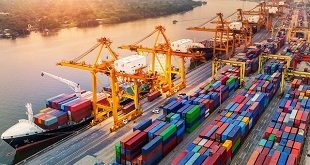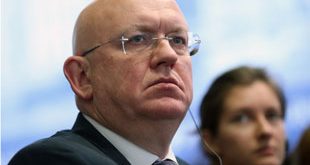
Beijing, China | Xinhua | A month has passed since Russia launched a “special military operation” in Ukraine. The United States has not only failed to take practical measures to de-escalate the situation, but continued to “fan the flames” through weapon assistance and sanctions.
The root cause of the outbreak of the conflict, analysts believe, is the continuous eastward expansion of the North Atlantic Treaty Organization (NATO) led by the United States.
To maintain its hegemony, the United States has never hesitated to sacrifice the interests of other countries, including its European allies, which has long caused dissatisfaction among all parties.
U.S. MIND BENT ON HEGEMONY
Russia’s concern that NATO is expanding to its borders has never been heeded by the United States, “which is only interested in maintaining its hegemonic status in Europe, and which has been steadily retreating from that collaborative policy which the West committed itself to after the Cold War,” William Jones, Washington bureau chief of the U.S. publication Executive Intelligence Review, told Xinhua in a recent interview commenting on the situation in Ukraine.
After the Soviet Union disintegrated, the United States, a self-proclaimed “Cold War winner,” has kept squeezing Russia’s development space through the eastward expansion of NATO, which not only did not disappear with the Cold War but has increasingly gained strength to become a military bloc that engages in bloc confrontation under the leadership of the United States. In recent years, NATO has also wooed Ukraine to join, which eventually crossed Russia’s strategic bottom line.
Russian President Vladimir Putin has repeatedly warned NATO against deploying its troops and weapons to Ukraine, saying this represents a red line for Russia and would trigger a strong response.
In December, Russia presented the United States and NATO with a set of proposals for binding Western security guarantees. Since then, Russia has conducted intensive dialogues with the United States, NATO and the Organization for Security and Cooperation in Europe on security issues, but no substantial result came out of them.
Analysts say the United States is the real initiator of the Ukraine crisis. Till now when Russia and Ukraine are deeply mired in the conflict, the United States is still trying to reap economic and political benefits from this crisis.
Shares of U.S. military companies have risen sharply recently.
Former Pentagon analyst Franklin Spinney said the U.S. Military-Industrial-Congressional Complex stands to benefit from the conflict between Russia and Ukraine as it ramps up defense spending for what could be a protracted affair in Europe.
While Washington has made huge bucks from its military industrial complex, it continues to demonize Russia’s security threat to Europe and discourage the latter’s pursuit of strategic autonomy so as to consolidate its hegemony.
MANY COUNTRIES SUFFERING CONSEQUENCES
European countries are bound to bear the brunt of the Russia-Ukraine conflict, since it is seen as one of the largest conflicts in Europe over decades.
On one hand, a multitude of Ukrainian evacuees were flocking to other parts of the continent, with knotty problems arising from the mass evacuation; on the other hand, the crisis has also dealt a significant blow to the international trade of energy and agricultural products, threatening the global economic recovery.
Obviously, the whole international community will have to pay for this conflict, which broke out owing to Washington’s inflaming tensions.
According to data updated Wednesday by the UN Refugee Agency, more than 3.67 million Ukrainian people have been displaced. As the situation continues to worsen, the figure is estimated to surpass 4 million.
Filippo Grandi, head of the refugee agency, described the Ukraine conflict as “the fastest growing refugee crisis in Europe since World War II” in a recent tweet.
“The combined speed and scale of this movement is unprecedented in recent memory,” noted the agency’s spokesperson Matthew Saltmarsh.
The inrush of Ukrainian evacuees of this magnitude may put a strain on the countries accepting them and trigger political and economic problems. In late February, Slovakia has declared a state of emergency in connection with the mass influx of Ukranians.
Meanwhile, the crises of energy and food security stemming from the Ukraine conflict also gave Europe a headache. Europe, as a major importer of Russian energy, has been feeling the repercussions of Western sanctions on Russia, given the skyrocketing energy prices in the continent.
As the grain supply from Ukraine, widely known as the “breadbasket of Europe,” is cut in the short term, and possibly in the long term if the hostilities drag on, the military conflict is expected to further push up food prices.
Earlier this month, Jean Pisani-Ferry, a senior fellow at the Brussels-based economic think tank Bruegel, published a blog post assessing the significant economic policy consequences of the Ukraine conflict on the European Union.
He estimated that the corresponding short-term direct budgetary cost for the bloc and its members could represent 175 billion euros (193 billion U.S. dollars), or about 1.25 percent of GDP in 2022.
“Europe is facing a rethink of its Weltanschauung (world view), its priorities and its policy framework,” said the French economist.
Following a meeting of the International Monetary Fund Executive Board in early March, the organization cautioned against “very serious” economic consequences of the Ukraine crisis.
“Should the conflict escalate, the economic damage would be all the more devastating. The sanctions on Russia will also have a substantial impact on the global economy and financial markets, with significant spillovers to other countries,” it warned.
FOR PEACE, AGAINST COERCION
Instead of sanctions, which carries a hint of the Cold-War mentality and the United States has kept imposing on Russia together with some European countries and even attempting to lure and coerce more into, countries including China have championed peace talks as a way out.
Chinese State Councilor and Foreign Minister Wang Yi said on March 19 that China has always advocated for peace and opposed war, which is not only a tradition rooted in the country’s history and culture but has also been its foreign policy.
China will continue to make its judgment independently and in an objective and fair manner based on the merits of the matter, Wang said when briefing journalists on the exchange of views between the heads of China and the United States on the Ukraine issue during a video call that took place on March 18.
China will never accept any external coercion and pressure, and opposes all groundless accusations and suspicions against China, he added.
Wang’s words has been echoed by many countries, which oppose unilateral sanctions that have no basis in international law.
Indian Prime Minister Narendra Modi in a phone call with Putin on Feb. 24 said that the differences between Russia and NATO “can only be resolved through honest and sincere dialogue,” and called for an immediate cessation of violence and “concerted efforts from all sides to return to the path of diplomatic negotiations and dialogue,” according to a statement on the website of the Indian Ministry of External Affairs.
Pakistani Prime Minister Imran Khan on March 6 slammed Western envoys based in Islamabad, who had released a joint letter on March 1, urging Pakistan to support a UN resolution condemning Russia’s actions in Ukraine, the New Delhi-based television news channel NDTV reported.
“What do you think of us? Are we your slaves … that whatever you say, we will do?” the prime minister said at a political rally, according to NDTV.
“We are not in any camp,” he said, adding that Pakistan would remain “neutral” and work with those trying to end the conflict in Ukraine, NDTV reported.
Egyptian President Abdel-Fattah al-Sisi in a phone conversation with Putin on March 9 emphasized the importance of “prioritizing dialogue and diplomatic endeavors for swiftly settling the crisis politically to curb the deterioration of the crisis and to preserve the stability and security of the two countries,” the Egyptian presidency said in a statement.
South Africa aligns itself with the UN calls for de-escalation, dialogue and a return to diplomacy, and stands ready to support “genuine multilateral efforts to end the conflict and achieve a lasting peace in the region,” said South African President Cyril Ramaphosa on a national assembly plenary on March 17.
The president cited a view by scholars as saying that the conflict could have been avoided if NATO “had heeded the warnings from among its own leaders and officials over the years that its eastward expansion would lead to greater instability in the region.”
Ugandan President Yoweri Museveni said in an interview with Nikkei that he sees “double standards” in the Western response to Russia’s military operation in Ukraine, the news outlet reported on March 17.
Zimbabwe does not support the imposition of unilateral coercive measures or unilateral sanctions of any kind on any UN member state for the situation in Ukraine, as this is contrary to the UN Charter, the country’s Ministry of Foreign Affairs and International Trade said in a statement on March 4.
“Unilateral sanctions have never worked to resolve any situation,” it added.
“Possibly lost in all the headlines is that it is not the entire world against Russia,” said a recent article by The Boston Globe, adding that most of Asia, Africa and South America are either still working with Russia or trying to project an image of neutrality.
Many non-Western countries “don’t trust the West’s willingness or ability” to manage the economic consequences of the conflict in ways that protect the interests of non-Western states, a columnist wrote on Monday in The Wall Street Journal. ■
 The Independent Uganda: You get the Truth we Pay the Price
The Independent Uganda: You get the Truth we Pay the Price



Hegemony and arrogance of the West led by the USA have sparked and fuelled the Russia – Ukraine conflict. The novice of the Ukrainian leader has not helped out either; he simply plays puppet to NATO instead of fronting the well-being of his citizens. Russia is to blame, the Ukrainian leader has absconded his duty of getting his country out of harm’s way.